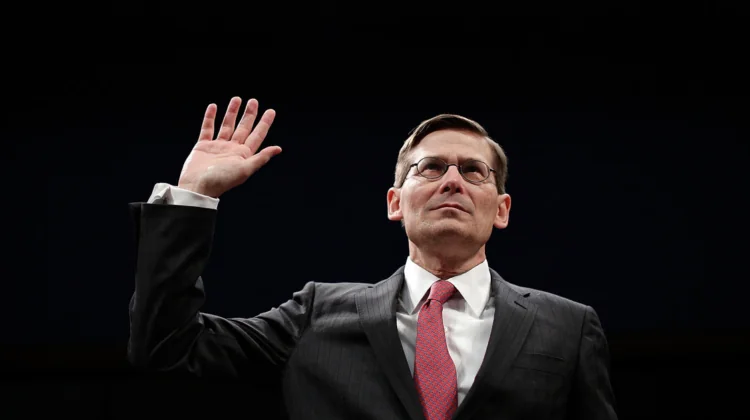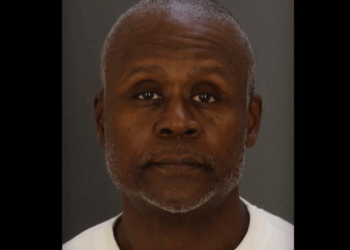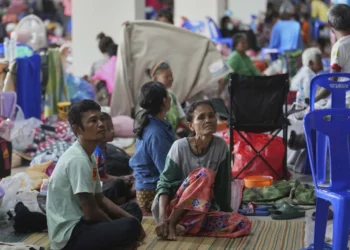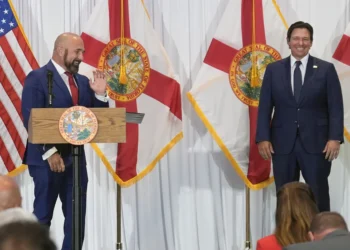
As she digs deep into the Russia hoax, Director of National Intelligence Tulsi Gabbard is taking a hard look at John Brennan and James Clapper. Not getting the attention he deserves is Michael Morell two-time “acting” CIA director – never confirmed by the Senate – and author of The Great War of Our Time: The CIA’s Fight Against Terrorism – From al Qa’ida to ISIS.
Morell claims his University of Akron professor urged him to apply with the CIA because his major, economics, encourages “critical thinking.” Morell hired on with the agency in November of 1980, rose through the ranks, and in early 2001 became the intelligence briefer for President George W. Bush. The CIA man “lived through 9/11 at the president’s side.”
Morell was aware of the attacks on US embassies in east Africa and on the USS Cole, which the CIA failed to prevent. The September 11, 2001 attack took the CIA completely by surprise. Director George Tenet, whom Morell describes as “brilliant in an unthreatening way,” decided to “evacuate” the CIA complex. He suddenly remembered that after the first attack on the World Trade Center in 1993, it was learned that Ramzi Yousef had planned to crash an airplane into CIA headquarters. That was not sufficient warning for the CIA on 9/11.
Morell writes of a “Great War” but fails to mention jihad, Islam’s longstanding holy war against the West. No word of George Bush’s post-9/11 proclamation that “the face of terror is not the true faith of Islam. That’s not what Islam is all about. Islam is peace,” and so on.
Morell contends that the terrorist attacks, taken together, “represented a national failure, because the American people would not have supported the action required.” So for this critical thinker, the American people were ultimately to blame. Morell touts the CIA’s “enormous successes” in the decade after 9/11 but readers have cause to wonder. The author notes the Islamic terrorist attacks at Fort Hood, the Boston Marathon, and San Bernardino, without lamenting any failure on the part of the CIA or FBI.
In September 2012 in Benghazi, “we had picked up specific intelligence from social media that there might be a violent demonstration there in reaction to an obscure film made in the United States that many Muslims believed insulted the Prophet Muhammad.” The author lets slip that the attack, which claimed four American lives, was an outright “military assault” but that was not included in the talking points. Obama national security advisor Susan Rice blamed the attack on a “spontaneous protest against an anti-Islamic video.”
Morell faults a “senior CIA editor” who worked after the analysts went home for the night. So “a simple bureaucratic screw-up became fodder for allegations of a political cover-up.” Morell’s contention that he played no role is completely unconvincing.
Secretary of State at the time was Hillary Clinton, who in 2013 said, “with all due respect, the fact is, we had four dead Americans. Was it because of protests or because guys out for a walk decided they’d go kill some Americans? What difference, at this point, does it make?” Morell fails to include that statement and his book includes only three references to the former First Lady, actually two because one can’t be found on the page assigned by the index.
To the charge that he was defending Clinton and the State Department, Morell says he was acting “to protect the Central Intelligence Agency.” That is one of the few believable statements in The Great War of Our Time, written “with Bill Harlow,” who also co-authored George Tenet’s At the Center of the Storm: The CIA During America’s Time of Crisis. A former Naval officer, Harlow served as chief spokesman for the director of the CIA. So despite the disclaimers Morell’s book is the CIA speaking.
In 2006 Morell became a member of CIA’s senior leadership team. He was friends with CIA director Leon Panetta even before he served as his deputy. John Brennan, who said in Undaunted that jihad “is a holy struggle in pursuit of a moral goal,” was “my friend and fellow career CIA officer.” Gen. Michael Hayden was “an outstanding leader,” and “someone I respect immensely.” President Obama was “brilliant and deeply attentive in any substantive meeting,”
Despite these longtime loyalties, Morell contends, “the CIA as an organization, and CIA officers, including me, in no way allowed politics to influence any of our actions or decisions with regard to Benghazi.” Politicians “have a hard time remembering that we serve Democrats and Republicans with the same professionalism and dedication,” which Morell would soon prove false.
He left the agency in 2013 and in 2014 joined CBS News as contributor on intelligence and national security. On August 5, 2016, Morell authored “I Ran the CIA: Now I’m Endorsing Hillary Clinton” in the New York Times. According to Morell, the former First Lady was “prepared, detail-oriented, thoughtful, inquisitive, and willing to change her mind” and held a belief that “America is an exceptional nation that must lead in the world for the country to remain secure and prosperous.”
Donald Trump, by contrast, was “not only unqualified for the job, but he may well pose a threat to our national security.” Trump’s “character traits” according to Morell, “suggest he would be a poor, even dangerous, commander in chief,” and Vladimir Putin, “had recruited Mr. Trump as an unwitting agent of the Russian Federation,” the same charge coming from Clinton. The people didn’t agree and Trump easily won the presidency.
In early 2017, Susan Glasser of Politico asked Morell if it was as mistake for top intelligence officials to weigh in against Trump.
“So, I don’t think it was a mistake,” Morell said. “I think there were downsides to it that I didn’t think about at the time. I was concerned about what is the impact it would have on the agency, right? Very concerned about that, thought that through. But I don’t think I fully thought through the implications.” So much for the “critical thinker,” and there was more to it.
Trump saw the CIA’s former acting director “criticizing him and endorsing his opponent.” The Republican nominee saw intel leaks “critical of him and his then-national security advisor, Mike Flynn.” When Trump spoke of tearing up the Iran deal, John Brennan pushed back publicly. So President Trump wonders “Who are these guys? Are these guys out to get me? Is this a political organization? Can I think about them as a political organization when I become president?”
Trump did, and duly pulled Brennan’s security clearance, an act Morell called “dangerous.” In 2020, long after the Russia hoax had been exposed, Morell joined former CIA bosses Brennan, Panetta, Hayden et al in the group of 51 signing the letter contending that Hunter Biden’s laptop was “Russian disinformation,” which the intel bosses all knew was false.
As Angelo Codevilla, an expert on the intel community like no other, wrote that year, “intelligence officials abuse their positions to discredit opposition to the Democratic Party, of which they are part. Complicit with the media, they leverage the public’s mistaken faith in their superior knowledge, competence, and patriotism to vilify their domestic enemies from behind secrecy’s shield.” And as Codevilla wondered in 2019, “Why are Clapper and Brennan not in jail?”
Mike Morell of CBS News might be the worst of the bunch, but as the wise man said, there’s small choice among rotten apples. Tulsi Gabbard must give this professional prevaricator the attention he deserves and at some point hand the Russia hoax cases to Pam Bondi.
“America’s Intelligence agencies are the deep state’s deepest part,” Codevilla explained, “and the most immediate threat to representative government.” As Trump likes to say, we’ll have to see what happens.

















